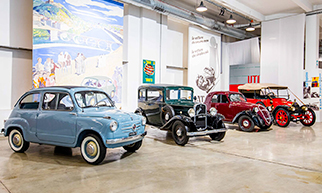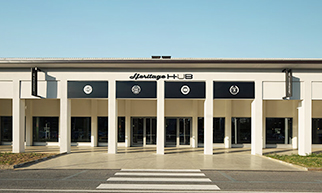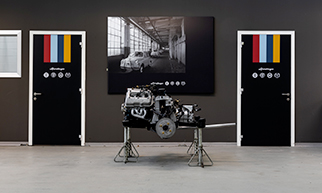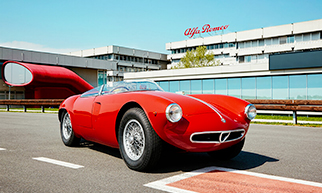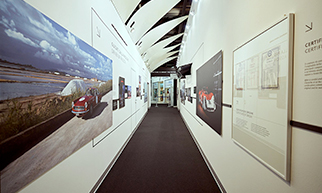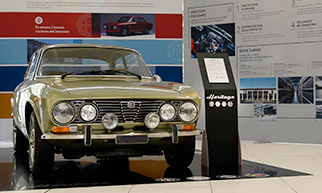21 December 2017
The world of Heritage
All about the department that champions the historic heritage of Alfa Romeo, Fiat, Lancia and Abarth.
The history of our cars and our brands
People’s passion for classic and vintage cars has no borders, but there are certain places at a definite point in space, and suspended in time, which conserve the essence of this passion. Places like Heritage.
A world of grand international events
Participating in the sector’s main events is an unmissable opportunity to admire up close the legendary cars that have inspired generations of fans.
Heritage stories
We describe a century of technology, style, competition and performance. We tell our story, and yours.
Last Stories:
The Heritage universe is constantly evolving
Stay up-to-date with the hottest news, don’t miss out on the latest collaborations and discover behind-the-scenes insights and anecdotes in interviews with insiders.
Last News:
18th September 2024
130 Lancia Deltas in Turin with Miki Biasion
Last Sunday, 130 Lancia Deltas paraded through the streets of Turin for the 2024 edition of Amiki Miei
Turin, 12 April 2024
Heritage pays tribute to the history of Abarth with two special projects
A temporary exhibition and the announcement of the Abarth Classiche 1300 OT project.
Discover our brand and model clubs all over the world
Use our locator to find your nearest brand and model clubs.
The history of four world-leading Italian motoring brands
From the most emblematic models to the most successful, revolutionary people, and the most significant events, this section illustrates and celebrates the cornerstones of Alfa Romeo, Fiat, Lancia and Abarth.
From now on, you and your passion can count on a team of experts
Certificate of Origin, Certification of Authenticity, restoration. To guarantee your car's timeless charm.
The classic boutique
Enter a world built on passion. An extensive range of products offered by Heritage to feed your timeless passion.
Cars for sale
Reloaded by creators is the Heritage project involving the sale of a small number of classic cars from the Alfa Romeo, Fiat, Lancia and Abarth brands: historic models, with certified authenticity, restored to their original beauty by the Constructor itself.
Back
